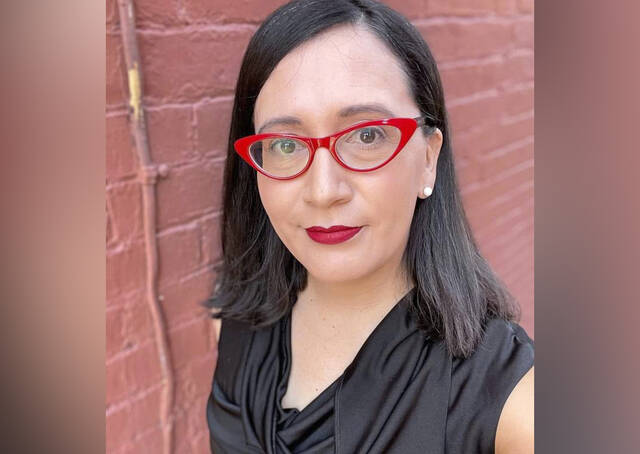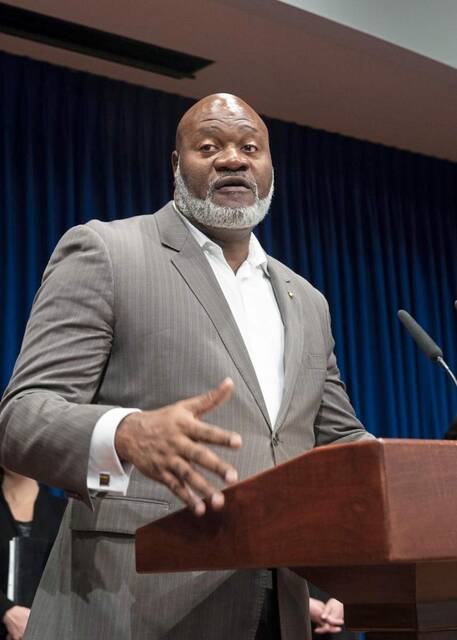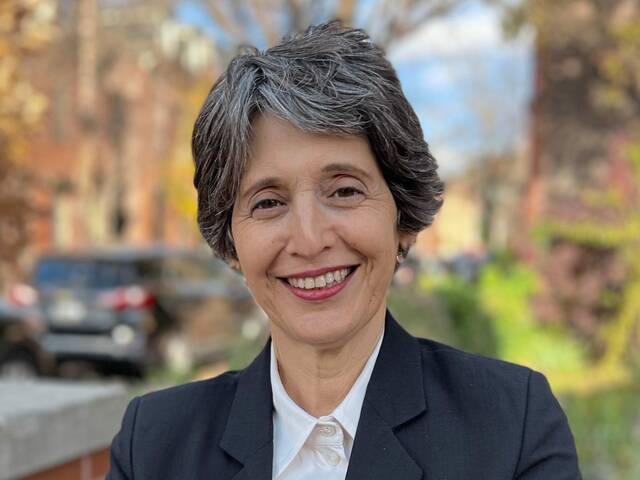When Pittsburgh voters elected Ed Gainey as the first Black mayor in the city’s history, he vowed to assemble a diverse administration.
A half-year into his first term, Gainey said he believes he has built “one of the most diverse administrations in the city of Pittsburgh, ever.”
Directors, managers and other key personnel brought on by Gainey have included Jake Wheatley, the city’s first Black chief of staff; Felicity Williams, the first Black female deputy chief of staff; Maria Montaño, the first transgender press secretary; Lisa Frank, the first female chief administrative and operating officer; and Kyle Chintalapalli, the first non-white chairman of the Urban Redevelopment Authority’s board of directors.
Half of Gainey’s administration is Black, while 23% is white, 13% is Latino or Hispanic, 9% is Asian and 5% is Asiatic, according to data provided by his administration.
Black residents make up about 23% of Pittsburgh’s population, while just more than 3% of the population is Hispanic or Latino, according to census data.
The administration also includes at least one openly gay person and one openly bisexual person, along with people from an array of religious backgrounds. More than half of the administration is female, and at least six members of the administration are in their 20s. Half of the administration was born in Pittsburgh, with 27% of them graduating from Pittsburgh Public Schools, and members of the administration represent 17 city neighborhoods, the administration said.
Gainey credited the diverse people working with him — people he called “overcomers” — for getting the city through the challenges it has faced since he took office in January, including a collapsed bridge, snowstorms and multiple acts of violence.
Gainey said he intentionally selected people to serve in his administration who were well-qualified for their jobs but had never been included in city government before because people “looked by them.”
“A lot of times, people put people in positions for diversity just for the sake of saying, ‘We have it,’” Gainey said. “I didn’t want to do that. These are people we feel are great people that you’ve overlooked in the past.”
Maria Montaño
Growing up, Maria Montaño would not have envisioned herself becoming Pittsburgh’s first transgender press secretary.
She didn’t know anyone in the LGBTQIA+ community, and the only representation she saw of transgender people was “on daytime TV talk shows as a sideshow attraction.” With few positive representations of transgender people, she said she didn’t understand what it meant to be transgender and struggled to find herself.
Montaño said she was beat up in school as a child and berated by a middle school teacher who told her she didn’t know how to be a man. In college, she contemplated suicide after she was abused, assaulted and outed as transgender.
“I just keep thinking about that little Maria who was so sad and scared to come out of the closet,” she said. “I never imagined myself being in a position like this, where I would be a face of a city, being the voice of a city.”
Montaño said she is working to ensure the next generation won’t have to endure what she has.
“Somebody shouldn’t have to be resilient just to exist in this world,” she said. “That’s what I get up and think about every day: What are we doing to make this world better for the next generation?”
As a transgender Latina woman, Montaño is representing multiple underserved communities.
“I think all of us in this administration bring a wider lens of experience to city government,” Montaño said. “Not only do we have the professional expertise to do our jobs, and it’s an added extra that we understand what it’s like to be a transgender, to be a Latina, to be a Black woman, to be a gay man. That says a lot when the people leading a city and helping create policy also understand what it’s like to live in those margins.”
Felicity Williams
Felicity Williams, the first Black woman to serve as deputy chief of staff, said she knows what it’s like to feel unrepresented in local government.
“Growing up, there really weren’t a lot of Black women in these types of positions,” she said.
That lack of representation drove Williams to be a community activist, working on issues ranging from criminal justice reform to education reform. Eventually, it led her to take a position in the mayor’s office.
“It really instilled in me a drive to be that person and to be that representation,” Williams said. “Not seeing the representation really just drove me to be such a strong advocate for my community.”
She said that brings with it some added pressure.
“There’s certainly the pressure of representing your community, of being a first. With that comes all of the pressure to deliver,” she said. “It’s so exciting, but it’s also a little overwhelming.”
Williams said the Gainey administration could break what she called a cycle of advocacy, in which activists representing historically underserved communities have been forced to ask their government to pay attention to their needs.
“That’s why it’s so meaningful to me to be in this position,” she said. “Now we’re in a position to make a lot of those changes.”
Lisa Frank
Lisa Frank realized at a young age that women weren’t always represented or given equal opportunity as their male counterparts.
“I remembered a time when I was pretty young — maybe 11 or 12 — when it dawned on me that it mattered whether you were a woman or a man,” Frank said. “I didn’t really understand what that impact would be, but I knew there was going to be an impact. I remember sitting down on the porch steps, and just needing to cry about that a little bit.”
As she moved toward the position she holds today, Frank said she was repeatedly struck with incidents of sexist behavior. In nearly every school she attended or job she held, she said she experienced “some kind of overt sexism (and) a lot of it sexualized,” and she often felt her expertise was overlooked.
“If you’re in a room where maybe you’re the most expert in whatever is being talked about, that doesn’t necessarily mean you’re going to get called on first — and maybe the whole conversation will proceed and you’ll never get called on at all,” she said. “You have to put up your hand and then maybe throw an elbow.”
In the Gainey administration, Frank said she finally feels like she doesn’t have to fight to be heard.
Jake Wheatley
Chief of Staff Jake Wheatley said he never felt like he couldn’t have a role in local government.
Wheatley said he grew up watching his mother, a Black woman, work in the United Autoworkers union. Later came an array of Black leaders who served as role models, including former City Councilman Sala Udin, now a Pittsburgh Public Schools board member; state House Speaker K. Leroy Irvis; and U.S. Rep. Dwight Evans of Philadelphia.
“It gave me someone as a guidepost, to say, ‘If they can do it, I can do it,’” Wheatley said.
Now, Wheatley said it’s his goal to be a guidepost for other Black people who want to become involved in government.
“Our responsibility is to walk every day as if someone is watching you, viewing you and mimicking the things you do,” he said. “You want to set that good course and example. But you also have to be intentional about opening doors, because you don’t want to be the last to come through.”
Wheatley said he recognized the importance of adding diversity on Grant Street.
“What makes our country, what makes our city and what makes our region great is because we have this melting pot of ideas, of perspectives, of understanding,” he said. “If the only thing we see around the table are white, straight males, then you will never be able to understand the whole picture.”
He said he is dedicated to elevating the voices of not only the Black community but all Pittsburgh residents — particularly those who have felt left behind before.
“Government reflects those who are active participants,” Wheatley said. “We will do all we can to be the voice for marginalized people, but the best voice for marginalized people are them themselves.”















